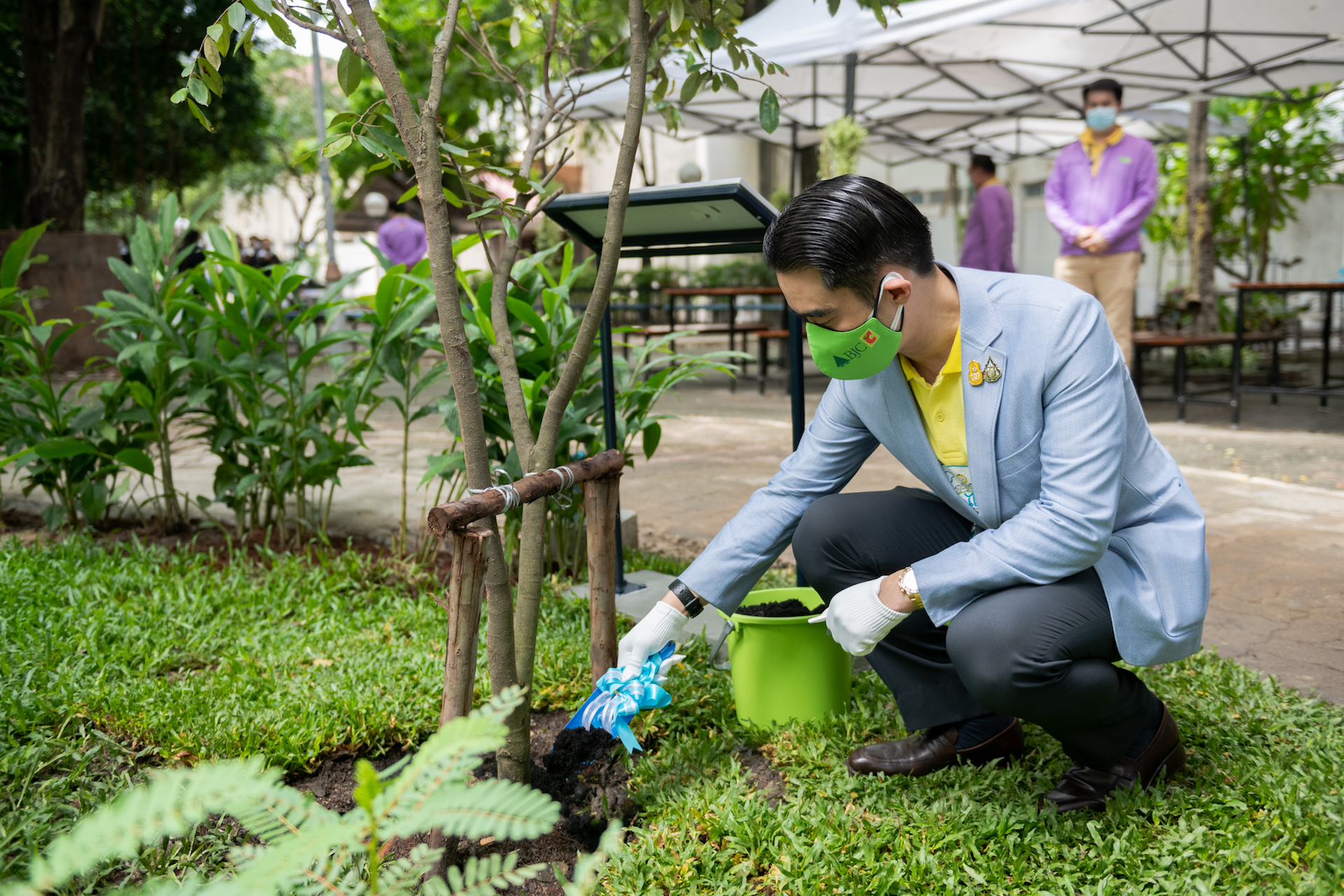Environmental
Better Living - "BJC is Committed to Conduct all Business Operations in a Manner in which it Contributes to the Preservation and Revitalization of the Environment and the Natural Ecosystem and Biodiversity, Allowing all Living Things to Achieve a Better Living, in a Better Environment"
Berli Jucker Public Company and Subsidiaries (Hereafter “BJC”) has long been devoted to integrate sustainability into all business operations, endorsed through the incorporation of the three key dimensions of sustainability, namely Environmental, Social and Governance (ESG) consideration into all decision-making, strategies, and targets, administering BJC with a coherent and inclusive guideline to effectively address all ESG related risks and opportunities.
This commitment derives from BJC’s acknowledgement to the importance of a balanced and functioning environment for all living organism on earth, which is continuously changing due to the threat of climate change, contributed by human influenced activities, emitting harmful greenhouse gases (GHG) into the atmosphere. As such, BJC has longed recognized the importance to actively endorse and contribute towards the global efforts to limit global temperature risk and avert the chain of consequential disasters from climate change. Furthermore, BJC confesses to its direct and indirect contributes towards the issue of climate change, through the direct Emissions of Greenhouse Gases (GHG) from its value chains, such as its manufacturing and retail supply chain, utilizing and consuming energy from the grid, which is mostly generated from fossil fuels, which also represents a large and important indicator of a business operating costs, and sustainability. The increase energy demand is partly driven by a greater surge in e-commerce than predicted, as customers/consumers increased prioritization of health, safety, and hygiene, which unfortunately translates into an outpour of waste, from the increased utilization of packaging and food loss & waste.
For this reason, the topic of Climate Strategy, Energy Management and Sustainable Packaging remains to be an important topic for BJC to actively discuss and managed accordingly. This prioritization is further enforced through BJC’s recognition of the actual and potential, negative, and positive impacts on the economy, environment, and people, including impacts on human rights such as right to safety, right to food and adequate food, clean air and water, health, right to life, right to access energy, used in their daily lives, and right to clean environment. Should BJC fail to adequately manage these topics, BJC risks facing various negative consequences such as increase frequency and severity of extreme weather events, including, amongst others, extreme heat, intense drought, wildfire, flooding, rising sea levels, catastrophic storms, declining biodiversity’s, increased operational expenses such as energy, limited access to a reliable energy source, sudden increase risk of legal violations, increase generation of wastes, packaging waste, and food loss & waste, infringing surrounding community’s standard of living, increased waste management expenses, block local water ways, presenting hazard to local biodiversity’s, and negative contribution towards global GHG emissions from food waste in landfills.
On the other hand, should BJC successfully manage these topics, BJC will benefit from minimizing negative contribution towards the threat of climate change, lowered operational expenses, environmental impacts and GHG emissions, contributing to the overall improvement of the global environment, improved corporate image and reputations, minimize generation of new plastics packaging, increase collection and utilization of packaging waste, increasing the safety, and sanitary of communities.
